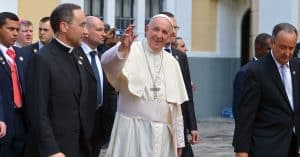Trump's envoy suggests Europe might not be involved in peace talks with Russia
U.S. Proposes Accelerated Russia Peace Talks
The Trump administration has taken a bold stance in its approach toward resolving the conflict between Ukraine and Russia, with plans that may exclude European participation in peace negotiations. This move has prompted considerable concern among the leaders of European nations, who fear being left out of key conversations impacting their region.
The administration is advancing plans for peace talks between Ukraine and Russia, exploring the possibility of conducting these negotiations without extensive European involvement, Fox News reports.
The suggestion that Europe might be sidelined came from Keith Kellogg, President Donald Trump's special envoy for the Ukraine-Russia dialogue. His remarks were delivered at a security conference held in Germany over the past weekend. In his comments, Kellogg expressed that reducing the number of voices at the negotiating table might facilitate a more effective peace process.
Concerns Arise Among European Leaders
This development has left European delegates both surprised and worried about their future role in the peace process. The comments came as President Trump prepared for anticipated meetings in Saudi Arabia this week aimed at advancing peace discussions. European leaders, including Icelandic Prime Minister Kristrún Frostadóttir and Estonian Foreign Minister Margus Tsahkna, voiced their concerns over the potential implications of Kellogg's assertions.
Kellogg emphasized that Trump is eager to secure a peace agreement within a limited timeframe, targeting a resolution within "days and weeks" rather than months. The urgency accentuated by recent phone conversations between Trump and both Russian President Vladimir Putin and Ukrainian President Volodymyr Zelenskyy has pressed the issue to the forefront of international diplomacy.
Several European leaders have rallied to emphasize that European countries must retain their presence in any negotiated settlement. The Icelandic Prime Minister noted the complexity of reacting to Kellogg’s unclear remarks, saying, "It's about more than just Russia; Europe’s inclusion is critical." Tsahkna pointed out the absurdity of discussing Europe in negotiations without the vital presence of European nations.
European Response and Continued Dialogue
Building on these concerns, French President Emmanuel Macron has proposed an emergency meeting to take place in Paris. This session is set to address the ramifications of Europe’s possible exclusion and aims to forge a unified European stance. Expected participants at this gathering include NATO Secretary-General Mark Rutte and leaders from Germany, Italy, the United Kingdom, and Poland.
British Prime Minister Keir Starmer stressed the importance of unity between the United States and Europe against external threats, arguing against any internal divisions. Vice President JD Vance used the same security conference to caution against overlooking internal European challenges, which he sees as more threatening than external actors like Russia or China.
Kellogg later tried to soften the impact of his earlier statements by affirming that European interests would remain a consideration, with the U.S. planning to serve as an intermediary. Despite these reassurances, the apprehension among European delegates remains evident.
Pressure Mounts on NATO and Europe
Mark Rutte, the NATO Secretary-General, urged European leaders not to remain passive but instead actively contribute ideas and strategic proposals. He emphasized enhancing defense spending as a pivotal move towards being a constructive part of the peace process. The prevailing sentiment is that Europe should not delegate its involvement; rather, it should work to present a united and active front.
The prospect of fast-tracked talks has underscored tensions regarding how much input various stakeholders might have in shaping the eventual agreement. Europe’s concerns about marginalization in such a significant discussion reflect broader geopolitical anxieties and the strategic challenges of maneuvering international alliances.
While the Trump administration aims for an expeditious resolution, many hurdles remain. The resolution of these issues rests on navigating complex international relationships and respecting the traditional roles that Europe and the U.S. have played in global affairs.
Looking Forward to Resolving Challenges
The upcoming meetings in Saudi Arabia and Paris will be pivotal in determining the next steps and the dynamics of international collaboration. European nations are hopeful that these discussions can serve to reintegrate their participation in the peace process.
The stakes are high, not only for Ukraine and Russia but for global strategic balances. The journey to achieving peace is fraught with obstacles, and success will depend on inclusive dialogue and cooperation among all parties involved.
The outcome of these negotiations will likely have enduring impacts on international relations, underscoring the significance of collaborative diplomacy in addressing global conflicts.




